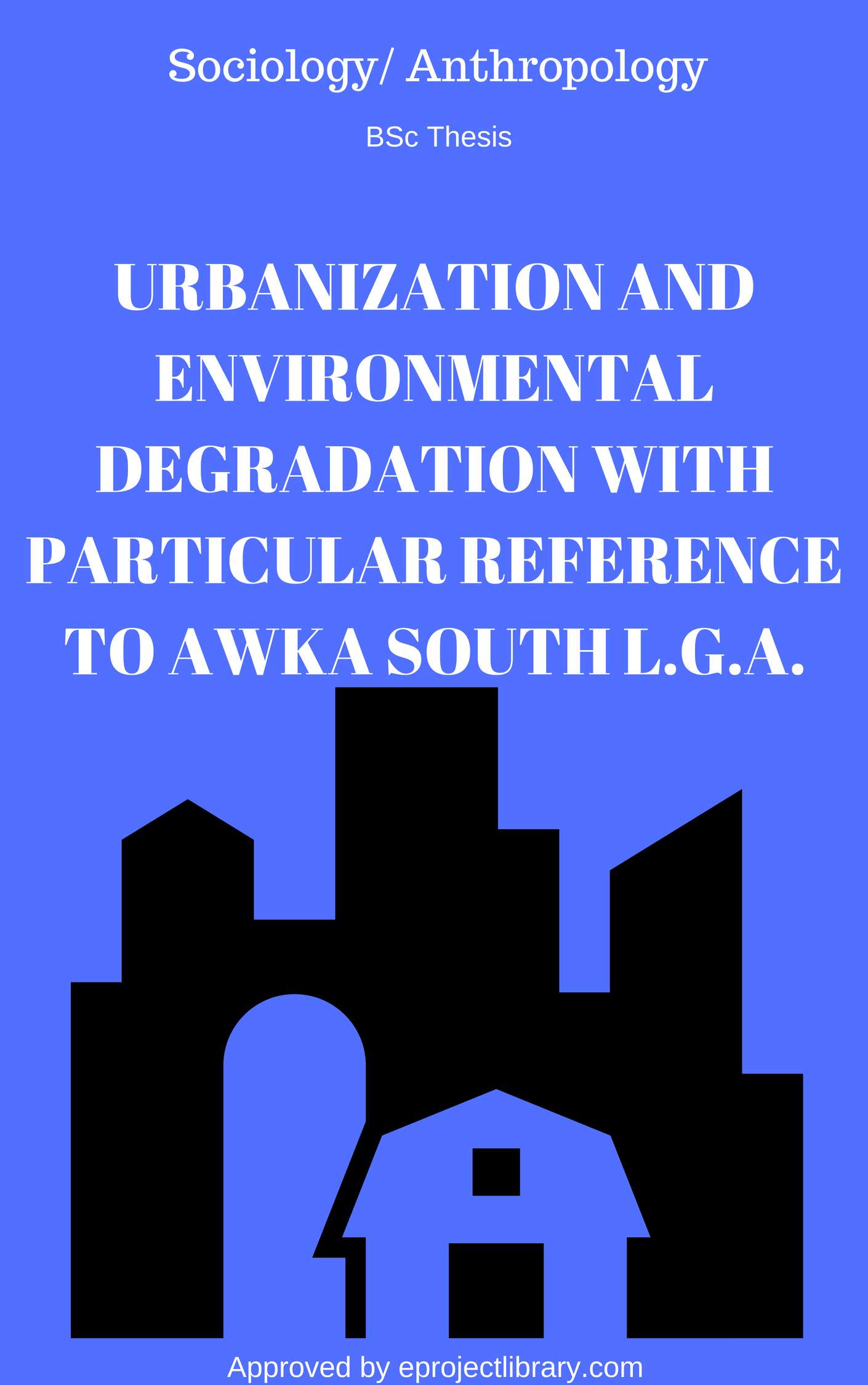ENVIRONMENTAL DEGRADATION AND URBANIZATION CASE STUDY OF AWKA SOUTH L.G.A.
ABSTRACT This study examined urbanization and environmental degradation with particular reference to Awka South L.G.A. Urbanization is one of the most powerful and visible anthropogenic forces on Earth, it is a major change taking place globally. Functionalist theory, Marxist theory and symbolic interactionism theory were reviewed in the study, while Functionalist theory was adopted as the theoretical framework. The sample size of the study was 200 participants selected through multi stage sampling technique which involves the simple random sampling technique, while purposive sampling technique was used for the selection of IDI participants. Questionnaire schedule and In-Depth interview guide were the instruments used for data collection. The findings from the questionnaires were manually analysed using frequency tables and simple percentage; qualitative data from the In-depth interviews were analyzed using manual content analysis, while the study hypotheses was tested using Chi-square ( ) inferential statistic. The findings indicated that there is a significant relationship between urbanization and environmental degradation. There is a significant relationship between respondent’s highest education qualification and perception of factors responsible for environmental degradation. The researcher recommended that government should integrate social, environmental and other costs of negative environmental externalities into economic activities, so that prices will appropriately reflect the true and total value of resources. This will help prevent cases of environmental degradation. It was also recommended that Institutionalize “Polluter Pays Principle” so that the polluter bears the cost of environmental degradation or pollution; thus providing the positive incentives to limit degradation or pollution of the environment.
INTRODUCTION
Urban areas in developing countries are faced with similar challenges that include economic viability, deteriorating infrastructure, environmental pollution, social disintegration, loss of community, crime and violence, urban blight, and population growth. In fact, these represent the challenges of maintaining quality of life while facing increasing fiscal constraints, resource limitations, and population growth. The costs and burdens of urban living are borne disproportionately by the poor. Poverty implies not only poor income, few material assets, and low quality of life; but also poor diets, poor environment, poor physical health, and immense psychological stress arising from the need to survive. Poverty not only limits the scope for mobilizing the revenue of urban authorities, it also limits the effective demand for basic urban services.
The consequences of urbanization in terms of environmental degradation and poor living conditions are quite visible on the Nigerian cityscape. It is increasingly clear that unless urban poverty is significantly reduced, there is little chance of reversing the current trends of environmental degradation and decay in Nigerian cities.
Employment is the most effective instrument to reduce poverty on a sustainable basis; therefore, it is imperative that emphasis is placed on higher productivity and incomes of workers. The informal sector, consisting of small-scale economic activities, accounts for a substantial share of urban employment and serves as the major means of livelihood for a large proportion of the urban poor. Therefore, any credible strategy to reduce urban poverty must pay due attention to this sector.
Lagos currently reflects the epitome of the decay of contemporary urban life; from overcrowded tenements, desecrated environment to growing crime. According to UNDP




Reviews
There are no reviews yet.